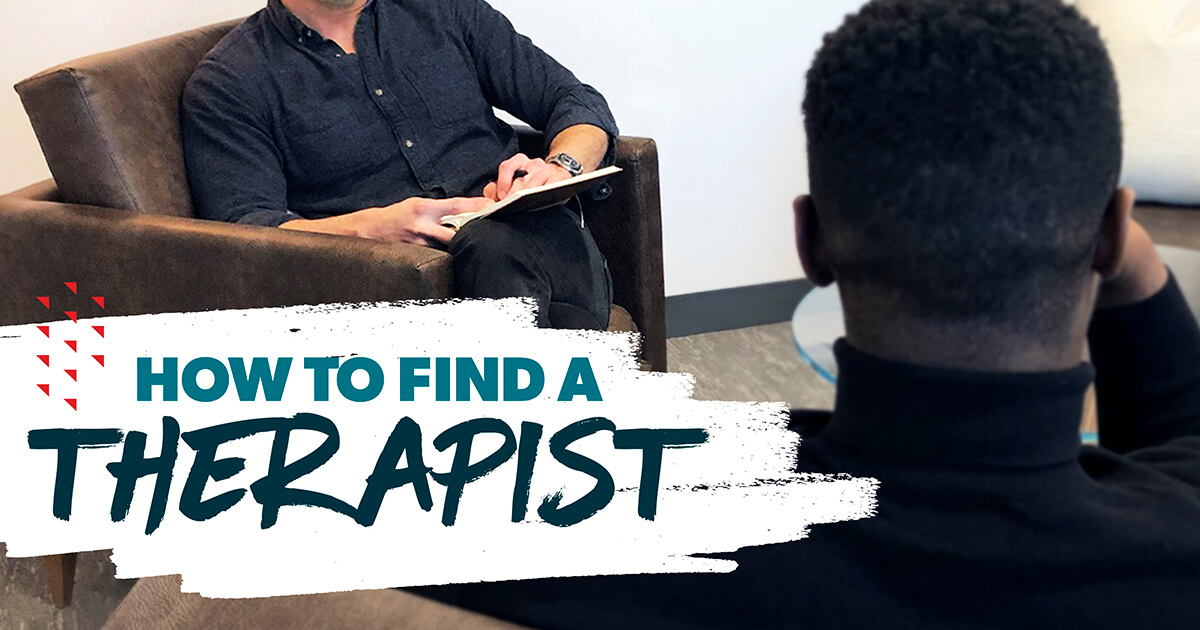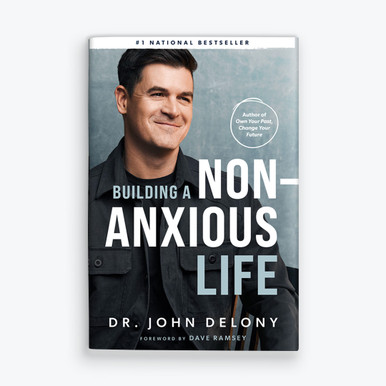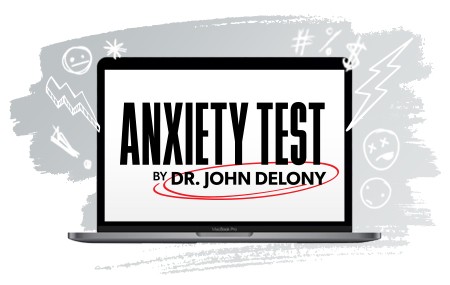How to Find a Therapist
13 Min Read | Nov 4, 2024

Whether you’re dealing with a major life-change or grief or trauma or a difficult relationship, working with a good therapist can teach you how to relate to yourself and the people in your life, reconcile your past, and build a new future. I know because I’ve been there—on the receiving and giving ends of therapy.
But before we talk about how to find a therapist, I want you to believe this truth: You are worth being well. And part of being well is recognizing when you need the guidance and support of a professional—so you’re already on your way.
It’s a process. It will be hard. But finding a therapist so you can start healing will be worth it.
Let’s begin.
9 Tips to Find a Therapist (You Actually Like)
When you’re thinking about starting therapy or finding a new provider, there are a few things to consider, like:
- What concerns do you want to work on?
- How much are you able or willing to spend?
- Does your therapist take your insurance?
- How long until you can get an appointment?
And so on. With that said, here are nine tips to find a therapist so you can start your path to healing and getting well.
1. Think about what kind of therapist you need.
A good therapist is a teacher who will walk alongside you as you learn about yourself, how you interact with the world, and how you experience relationships. Research has repeatedly shown that the relationship between a therapist and a client is the most important thing—more important than any particular therapeutic modality (that’s nerd talk for the method a therapist uses). Just like with any other type of relationship, you need to choose someone you connect with so you’ll feel comfortable being honest and vulnerable with them.
Here are some questions to ask yourself as you start your search:
- Will I be more comfortable meeting with a man or a woman?
- Do I want to have online/telehealth or in-person appointments? (I’m biased toward in-person if at all possible.)
- Do I want someone who shares my spiritual beliefs and world view?
- Do I need someone who specializes in a particular area (like grief, marriage, parenting, aging, trauma or abuse)?
By knowing what you’re looking for on the front end, you’ll narrow your search and save yourself a lot of time.
Qualities of a Good Therapist
In addition to your personal preferences, you can look for a few industry-specific qualities in a therapist. I’ve been in the mental health field for over two decades, and here’s what I’ve learned to look for:
- A good therapist is a teacher. A therapist should never be condescending or unrelatable. They should rarely give you advice. Their job is to listen deeply, reflect, and teach you how to connect the dots across relationships and events. A therapist is not a mystic, healer or predictor of the future.
- A good therapist is not your friend. They’re not your buddy or a future romantic partner. Their job is to teach you how to be a good friend or romantic partner to the people in your life.
- A good therapist will challenge you. Therapy should be uncomfortable if it’s done right. A counselor should not always be neutral. They should be able to tell you the truth when you’re wrong. It’s their job to point you to new directions you haven’t considered or challenges you’re avoiding.
- A good therapist reflects you to yourself. A good therapist holds a mirror up to you, showing you how people experience you in the world. For example, a therapist might find that they feel unengaged with a client. When the therapist feels bored, they might ask, “I’m struggling to stay engaged with you. Has anyone ever told you this before?” It might sting in the moment, but when your therapist reflects their experience and shares truth (gently), it’s one of the most loving things they can do for you. If you truly want to develop skills of connection, you need to be able to accept honest feedback.
2. Ask people you trust for a referral.
Ideally, you can find a therapist by talking to people you already know and trust. Do you have friends, family or a trusted doctor who can give you a few names to research? Word of mouth is the best place to start because you can find out about the therapist through someone else’s experience and results.
3. Figure out your therapy budget.
You’re worth being well—even if that means canceling those front-row concert tickets or skipping a few Friday night dinners so you can budget that money for therapy. (It’s worth it.) If you have insurance or workplace benefits that will help cover therapy visits, that’s great news. I encourage you to take full advantage of that coverage. (In just a second, I’ll talk more about how your insurance can help with finding a good therapist.)
Want to build a non-anxious life? Learn how in Dr. John Delony’s new book.
Whether you do or don’t have a counseling benefit or behavioral therapy coverage, it’s still important to price out different providers. This way you’ll get a ballpark idea of how much each session will cost. Some therapists offer their services on a sliding payment scale, and most should display the prices of different sessions (like an initial intake appointment or follow-up appointments) on their website. If not, feel free to call them and find out. And if you need some help organizing your budget to cover therapy each month, I recommend using the free EveryDollar budgeting app.
4. Check with your insurance to find an in-network provider.
Therapy can be expensive (I wish this weren’t true), and many therapists have so much business that they simply charge cash instead of going through insurance. If you have health insurance, hop on the phone or look online to see what coverage you can get from your provider. If they cover mental health, they should have a directory of providers who are in-network. Also, there might be a limit to the number of sessions your insurance will cover, so find out that information on the front end.
Don't let your insurance policy keep you from getting the help you need. Find an independent agent near you to get the health insurance you need at the best price.
Building a Non-Anxious Life
5. Search online.
Maybe it goes without saying, but you can always turn to the all-powerful Google to research therapists. You can learn a lot about therapists in your area by searching accredited websites and reading about their approach and their values. Here are a few databases to check out:
- The American Psychological Association
- The American Association for Marriage and Family Therapy
- Psychology Today
- National Register of Health Service Psychologists
These are all accredited organizations that will connect you with trained professionals in your area.
6. Look into local resources.
With a little digging, you might discover a gold mine of resources in your city. And they might be more affordable than you think! Here are a few places to look:
- Community centers (think YMCA or state-run organizations) often have low-cost counselors and free mental health resources.
- Universities have a lot to offer. If you’re a student, you should have access to mental health professionals for free or a significantly reduced rate. And even if you’re not a student, you might be able to get counseling at a lower rate with graduate students who are working on getting hours for their accreditation.
- Your workplace might offer some counseling benefits. Check with your human resources department!
- Churches usually have counselors (or pastors) on staff who would be happy to meet with you.
7. Ask your potential therapist a few questions.
At some point in your search, you’ve got to just book an appointment and see how it goes. This doesn’t mean the search is over, however. Some therapists will use the first session to see if you’re a good fit. That’s because—once again—therapy is all about relationships, and relationships take time.
In your first session, here are a few logistical questions to ask that will help you make your decision:
- Do you accept my insurance?
- Can you help me with my particular challenges?
- Will we commit to this relationship for the next few months, or longer?
- What counseling methods do you specialize in?
- How would your existing patients describe your counseling style?
A note about credentials: There’s a wide variety of mental health professionals with different degrees. Some of the most common are licensed professional counselors (LPCs), licensed mental health counselors (LMHCs), marriage and family therapists (MFTs), licensed clinical social workers (LCSWs), and psychologists (who usually have a doctoral degree). Psychiatrists (MDs or DOs) are the only mental health professionals who are able to prescribe medicine. They very rarely do any counseling.
8. Don’t give up after the first session.
Unless your first meeting is total disaster, don’t bail after one session. In my experience, things start to click during session three or four. Or they don’t. The point is, you shouldn’t quit on therapy until you’ve actually put in some time and effort. It will be uncomfortable and hard, but it should also be healing and safe.
If you’re not connecting with them after three or four sessions, give yourself permission to leave and find someone else. As professionals, they know best of all that if you’re not connecting, your chances of success will be small. You don’t have any obligation to keep seeing a particular counselor just so you won’t hurt their feelings, but you do have an obligation to treat the therapist with respect and let them know if you decide to leave. Cancel your next meeting in a timely and courteous manner and communicate (politely) why.
9. Reflect on your first few meetings.
Therapy can be a lot of work. You might feel very tired after a session, especially your first few. This isn’t a bad thing—you just need to give yourself time and space to reflect on how things went. You’ll have homework, things to practice, and insights and reflections to bring back during follow-up appointments. It’s all part of the healing and growing process.
After you leave the therapist’s office (or end the virtual appointment), take a few minutes and ask yourself:
- How did my body feel during the session? Tense? Relaxed?
- What emotions did I experience during the conversation?
- Did I feel listened to and valued?
- What questions did the therapist ask, and what statements did he or she make?
- What did I learn about myself?
As you make your final decision, I want you to keep these important truths in mind:
- You should not be in counseling forever. A counselor’s job is to walk alongside you, help you, and send you on your way. A good therapist should tell you something like, “My job is to work myself out of a job with you.”
- Be wary of a therapist who gives you a diagnosis in the first session. Mental health diagnoses such as bipolar disorder, schizophrenia and major depressive disorder are complicated and multifaceted. I’m immediately suspicious of a therapist who comes to a quick conclusion. You want to work with someone who’s patient and thorough.
- A trained therapist should not dig into the details of trauma in the first session. Your therapist should discuss a safety plan with you before you unpack trauma. You should feel in control—at all times—of that narrative.
Hope for a Better Future
I’ve got one last tip for you. I want you to think deeply about your life right now—all of the obligations you have, the roles you play, the history and traumas you’ve experienced, and the aches and pains and wounds and anxieties you carry. Then, I want you to paint a picture of where you’re going—the life you hope to have in the future.
Who do you want to become? What do you want your relationships, work, body, attitude and interests to look like? How will you feel? How will your relationships look? How hard will you laugh and sleep and hug? Visualize it. Dream it up. And keep that picture in mind as you enter therapy.
A good therapist is like a companion riding shotgun on a road trip. They help you navigate unknown terrain. They help keep you focused when you’re tired of the long drive. They listen to your thoughts and stories. They give you permission to be yourself. They teach you how to heal and get where you want to be. And over time, they teach you how to be confident in the driver’s seat of your own life.
If you want to take your healing journey to the next level, check out my free Anxiety Test. In it, you’ll learn which areas of life may be contributing to feelings of stress and anxiety—and what you can do to start building a non-anxious life.
Free Anxiety Test
This test will help you get clarity on the situations that could be contributing to your feelings of stress, anxiety and burnout.
Frequently Asked Questions
How do I start seeing a therapist?
I recommend calling your insurance company and getting a list of providers in your area. Then you can filter that list down to therapists who are closest to your home or work, are within your budget, and who specialize in whatever you need help with. Then you’ll call whoever seems like the best match and schedule your first appointment. After filling out some paperwork, you’ll be ready for your first session.
How do I know which therapist is right for me?
Many therapists offer a free introduction call so you can ask them questions about their experience, specialties and methods of treatment. You can also research them online through their website if they have one, or you can find information and read reviews on sites like Psychology Today or your insurance directory.
What’s the difference between a psychologist and a therapist?
Psychologists—typically doctors of psychology with a PhD or PsyD—have different training and areas of study than therapists, who typically have a master’s degree. Psychologists typically study how the brain works and how people behave, while therapists provide support and care for people trying to overcome challenges in their life. Both psychologists and therapists may be great options for people looking for support and care.
How do I know if I need therapy?
If you’re experiencing life challenges or feel low, anxious, unmotivated, overwhelmed, or generally bad . . . therapy could be a good idea. If you’ve already seen a primary care provider to rule out other medical possibilities, a therapist or counselor is a great idea to get more emotional support, stress management techniques and relationship advice.




